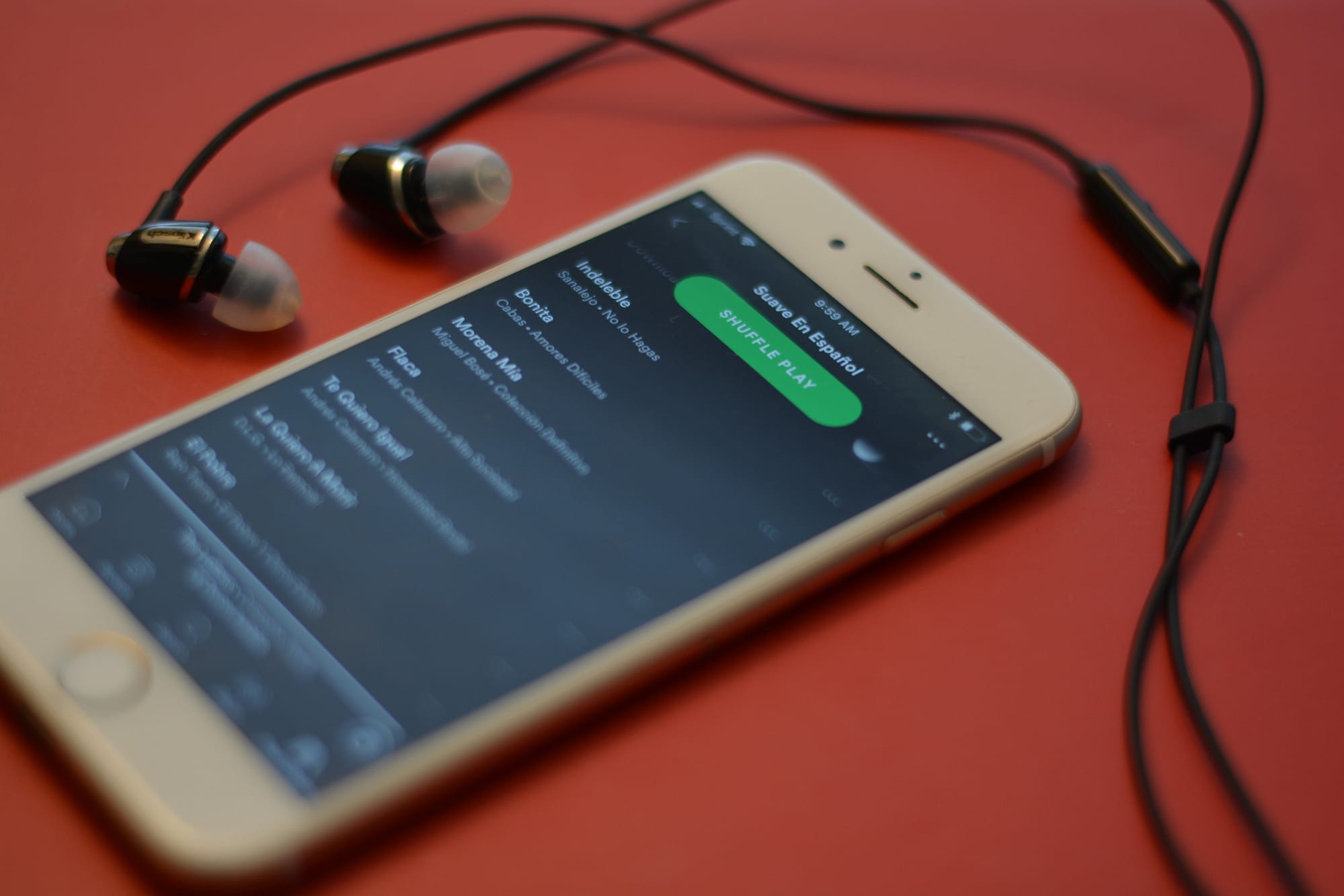This is the second half of the story of how I have been relearning Spanish over the last few months. In addition to learning vocabulary and grammar rules, I had to find ways to practice reading, writing, listening, and speaking. In an ideal world, I would have found a partner to speak with and correct my writing, but with my hectic schedule in the last few months of grad school, I never got around to it. So here are my strategies for practicing all four of the essential language skills on my own.
Listening: Netflix & Spotify
Once you get the basic vocabulary and grammar down, watching TV and movies in your chosen language is a great way to hone your listening skills and get exposed to colloquial words and phrases. I found a great Spanish telenovela on Netflix, as well as some good Spanish language movies, but depending on the language you might have better luck finding material elsewhere. And in this case, binge watching is actually the best way to do it! Watching several episodes in a row gives your brain time to transition into the other language. I find that my comprehension improves more when I watch for at least three or four hours at a time.
You can’t be too lazy about it though — the important thing is that you really do hear and understand what is being said, without looking at subtitles. When I first started, there were lots of scenes where I could figure out from the context what was going on, but I didn’t actually understand what the characters said. It’s tempting to just keep going, but that won’t improve your listening skills. My strategy is to pause and watch the scene again, and if I still don’t get it, I watch it with subtitles and then again without subtitles. Some people say you should just watch the same movie over and over again until you practically know every word by heart, but that doesn’t make a lot of sense to me, since you never test yourself with new material that way (and it sounds incredibly boring). I’m now nearing episode 55 of the 66-part drama I’m watching, and I’m able to understand nearly everything now. I still have trouble when they talk too fast or mumble, but I’ve noticed a significant improvement in my listening skills over time.
I have also been listening to a ton of Spanish language music. I wouldn’t recommend using music as the only source of listening practice because the grammar and phrasing isn’t the same as speaking, and you can’t watch the singer’s mouth moving. But as an addition to watching movies or TV, it’s a lot of fun! I found a couple artists that I really love and listened to all their albums dozens and dozens of times, until I knew almost all the words to every song. Then I started listening to a mix of new songs, really focusing on listening for the meaning instead of just letting the music be in the background while I do something else. I love to do this on the train, when I have nothing else to distract me.
Kindle
I hope to one day use my Spanish for business as well as casual conversation, so reading skills are as important as listening for me. I’m not the biggest fan of digital reading for a variety of reasons, but I’ve found that when it comes to reading in Spanish, the digital format adds a lot of value. I use the Kindle app on my laptop, iPad, and iPhone, and it allows me to look up words I don’t know using a Spanish dictionary, translate them into English, and highlight them so that I can go back later and make flashcards for them. My highlights and most recently read page are synced across my devices, so I can read whenever I get the chance and never lose any progress.
I’ve chosen to read the Spanish translations of the Harry Potter series for a couple of reasons. One is that it’s written for kids and teens, so the level of challenge is high enough that there are lots of new words for me, but not so many that I can’t get into it. Another is that I’ve read it in English many times, so I know how the story goes, and I’m more likely to notice if I misinterpret something that I read. And of course, I’m a die-hard HP fan, so what could be more fun than re-reading my favorite story in a new language? The one obvious drawback to this choice is that I end up learning a bunch of words about magic that I’m very unlikely to need in everyday conversation…oh well!
Journaling
I already keep a journal (in English), so to practice writing in Spanish, I simply started writing the first couple paragraphs of every journal entry in Spanish. I do my best to write with correct grammar and spelling without using any references at first, and then I check my work using online translation tools, like Google translate. Granted, these tools are not perfect, but they usually alert me to any areas of possible error, and then I can use other resources to figure out the most common way to say things. There are websites where you can submit writing to be corrected by a real live native speaker, either for a small fee or in exchange for correcting someone’s English, but I have never used these.
The great thing about writing about your own life is that it will prompt you to learn the vocabulary for the things that are most important and interesting to you, which is super helpful when you are meeting new people and answering questions about yourself. It also forces you to learn a variety of highly useful grammatical constructions, like telling a story about something that happened in the past, expressing thoughts and opinions, and imagining the future. If you want to get even more grammatical constructions in there, like giving advice, you can try writing as if it were a letter to someone (maybe yourself!).
Singing, Reading Aloud, & Visualization
Reading, writing, and listening are easy to practice alone, but speaking is another matter. You could practice certain elements, like pronunciation or verb conjugation, on your own, but responding in real time to another person involves a much more complex set of skills. It’s really best to find a conversation partner to talk with, either online or in person, and there are websites that facilitate that. In the chaos leading up to my dissertation defense, I never found the time to do that. So, to squeeze in some semblance of speaking practice before, I used a combination of singing, reading aloud and visualizing conversations.
As I mentioned before, I listened to a few Spanish language albums enough times to learn the lyrics to a bunch of songs. Singing along is a great way to practice pronunciation because it allows you to say the same things over and over, until you really get the words rolling off the tongue nicely. It helps you get the feel of the language in your mouth, which may sound a little weird, but any multilingual person can attest that different languages require different ways of using the tongue, lips, and throat. Understanding these differences and becoming accustomed to them can make the difference between being understood by native speakers or not.
As I mentioned before, the grammar and phrasing of songs is different from speaking, and singing along to music involves saying the same things over and over. So I also practice reading aloud. That way I can develop my ability not only to comprehend written words but also to speak with fluidity and phrasing that makes sense, and I’m constantly testing myself with new material. I don’t always get a sentence right the first time — maybe I’ll pronounce a word incorrectly, put the emphasis in the wrong places, or realize at the end of the sentence that I’m not sure what it means. In those cases, it’s important not to just plow on but to go back and say it again until you get it right!
The last thing I do is visualize conversations that I might have. For instance, I might think about meeting my host in Colombia for the first time. What will she say? How will I respond? What will she want to know about me? What will I want to ask her? You can do this for any situation you can possibly imagine, and I often find that the further I get in visualizing the conversation, the more things I think of that I want to practice saying.
Now that I’m in Colombia and surrounded by Spanish speakers, things are a little different, and of course I’m learning so much faster! More on that later this week, I promise.


